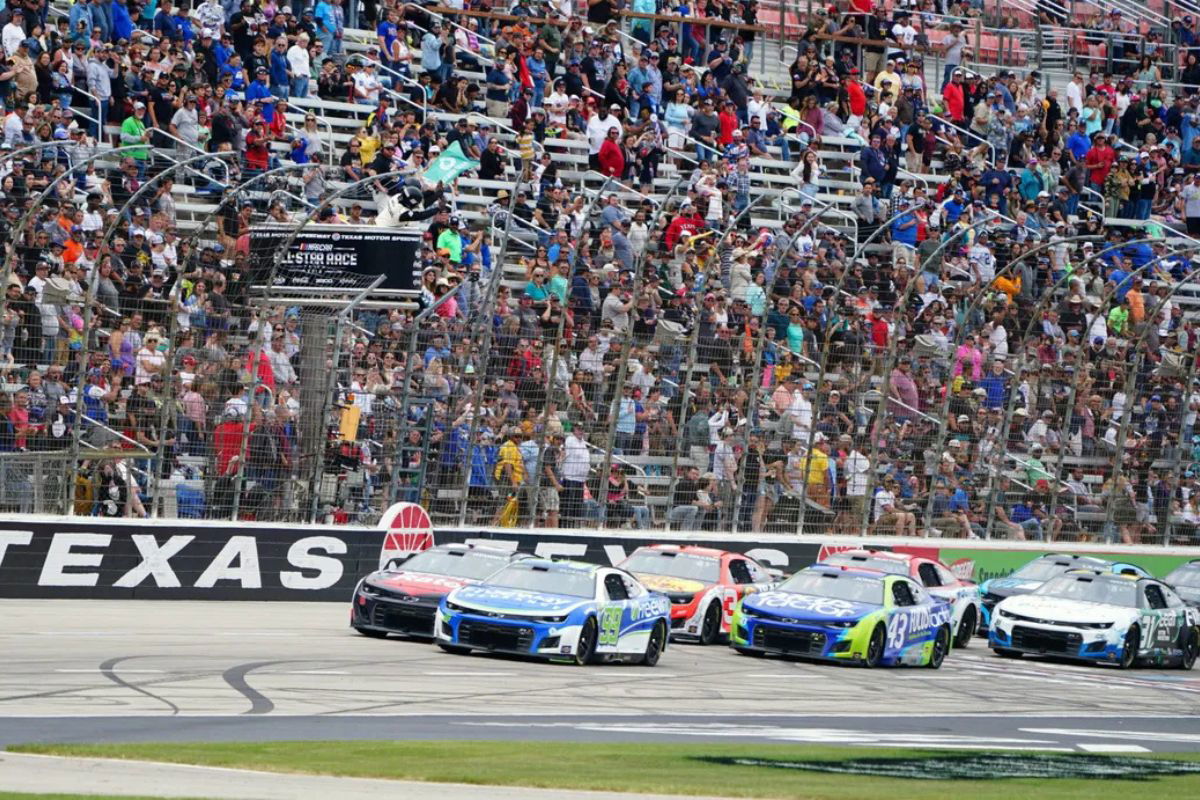
USA Today via Reuters
May 22, 2022; Fort Worth, Texas, USA; NASCAR Cup Series driver Daniel Suarez (99) and NASCAR Cup Series driver Tyler Reddick (8) lead the pack to a restart during the All-Star Open at Texas Motor Speedway. Mandatory Credit: John David Mercer-USA TODAY Sports

USA Today via Reuters
May 22, 2022; Fort Worth, Texas, USA; NASCAR Cup Series driver Daniel Suarez (99) and NASCAR Cup Series driver Tyler Reddick (8) lead the pack to a restart during the All-Star Open at Texas Motor Speedway. Mandatory Credit: John David Mercer-USA TODAY Sports
NASCAR has received backlash for numerous reasons over the years. Be it the charter deal, Damaged Vehicle Policy, or the playoff format. However, one complaint that NASCAR has grappled with stands out. The 76-year-old sport is traditionally known for its roaring cars. These cars had upwards of 1000 hp back in the day, to deliver electrifying races around oval tracks. However, that is no longer a reality – NASCAR scaled down the hp from 900 to 750 in 2015, then reduced it further to 550 hp. Currently, the Next-Gen car runs at 670 hp, with core fans grieving about the loss of raw power.
Watch What’s Trending Now!
However, now an unlikely project brings with it the promise of solving this problem. Electric cars go directly against the concept of roaring, gas-guzzling V8 combustion engines that the sport is known for. Yet their horsepower expectation far surpasses what any NASCAR vehicle has ever produced.
ADVERTISEMENT
NASCAR’s novel solution to an old problem?
The Chicago Street Race saw something unique this year. NASCAR unveiled its electric prototype in partnership with ABB, Formula E’s title sponsor. The EV was available for several show runs during the race weekend and one run even included a standing start to highlight the vehicle’s instant torque. However, the backlash against this innovation was massive. 2014 Cup Series Champion Kevin Harvick complained that authorities were trying to cut down the traditional sounds and smells of combustion-based motorsport. Despite the limitations, the EV may also have several advantages, one of which may solve the horsepower debate.
Recently, the car’s sponsor, ABB, brought it to its North American headquarters in Cary and a plant in Mebane so employees could see it. Developed by a team that included Chevy, Toyota, Ford, and an Austrian company, the EV over-delivers with its 1300 horsepower, nearly double that of a Cup Series car. It accelerates quicker than any gasoline-burning NASCAR vehicle. But the EV prototype ran two-tenths of a second slower than the current cars in test laps around Martinsville Speedway. EVs turn deceleration into energy that goes back into the battery, but that trick doesn’t work on tracks where drivers need to constantly accelerate to zoom around oval circuits.
ADVERTISEMENT
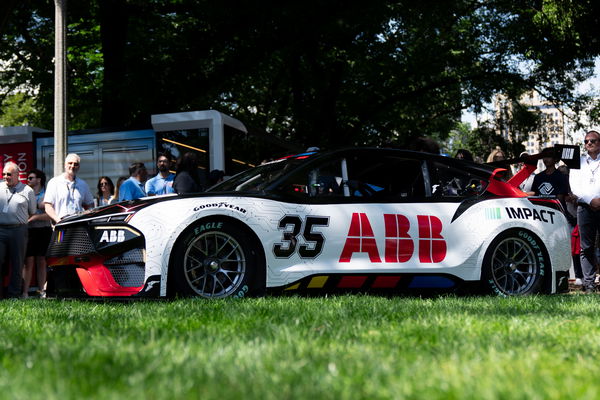
Imago
[NASCAR EV Prototype]
ADVERTISEMENT
ADVERTISEMENT
Evidently, the horsepower buff contrasts with a few other limitations in the EV. However, an alternate possibility turns up in this situation.
Top Stories
Illegal Fight Sparks Chaos at Chili Bowl Nationals Leaving Team Member Struggling to Breathe
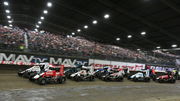
NASCAR Veteran Revisits His Most Hopeless Stance Against Dale Earnhardt That Ended in Inevitable Defeat

Dirt Racing Legend Sets His Eye on Kyle Larson as Battle for Golden Driller Intensifies in Chili Bowl
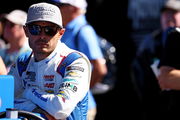
Before the ‘Boogity’ – the Dark History of Darrell ‘Jaws’ Waltrip That New Fans Forget

ARCA Star Kicked Out of Chili Bowl Seat as ‘Safety Concerns’ Force Driver Replacement
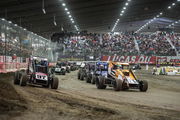
A separate series altogether?
NASCAR’s EV debut elicited bitter reactions from diehard fans. They cried foul of the car’s silent run and its unappealing proportions. Even Kevin Harvick said, “If it does not make noise and smell like it’s burning gas, there is no freaking way.” However, the EV has a few fascinating aspects. The generic Crossover Utility Vehicle (CUV) body resembles the most mainstream vehicle on the American market. That makes the EV prototype a marketing marvel. Also, as automakers move towards a hybrid and all-electric future, NASCAR needs to adjust to keep them aboard. So Marshall Pruett, a veteran racing journalist, suggested that the sport may be thinking of a different avenue. “What if we can keep racing the thing you know and love, and introduce a new championship?”
ADVERTISEMENT
Currently, only Chevrolet, Ford, and Toyota compete in NASCAR. However, with the EV prototype, many other OEMs may show interest in joining the sport. “With this vehicle concept, they have identified an area that is totally underserved,” Pruett said. “A secondary championship opens up a whole new world of manufacturer and sponsor possibilities by courting SUVs and premium luxury manufacturers. This, to me, could be the magic solution that gives you a ton while settling any fears for NASCAR’s existing fan base.”
The EV model throws up a lot of possibilities. Although the horsepower issue may be solved, the other caveats limit the car’s performance. However, work is clearly in progress.
ADVERTISEMENT
ADVERTISEMENT
ADVERTISEMENT
ADVERTISEMENT

